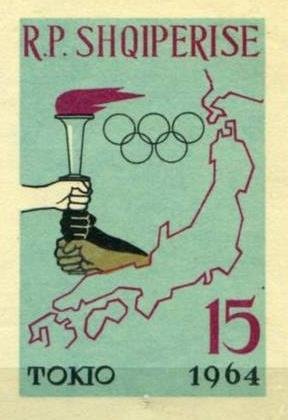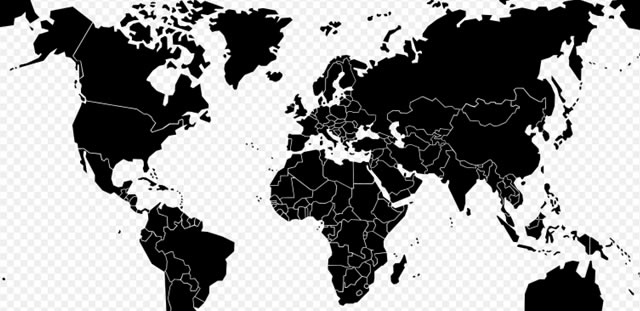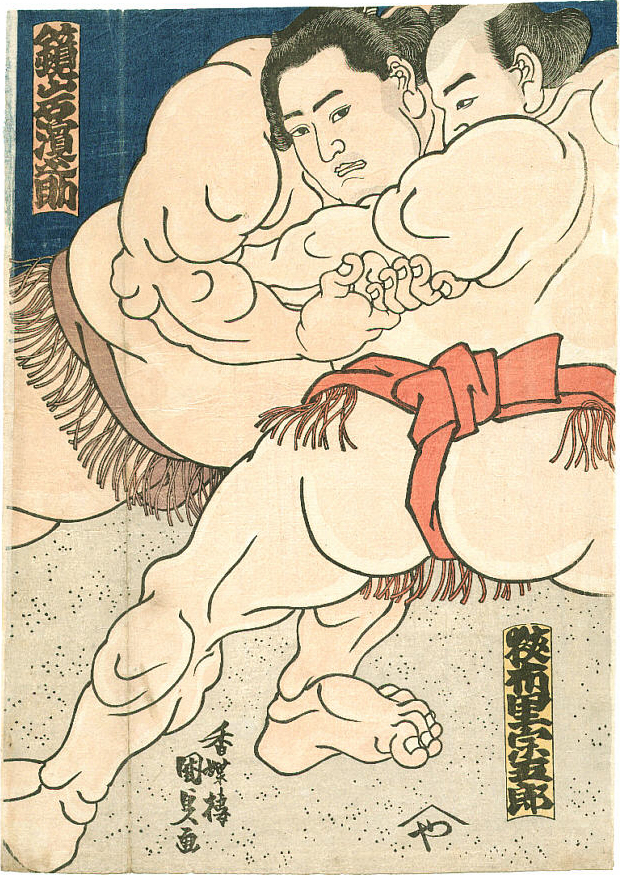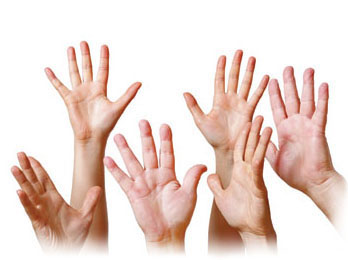Stamp: Hands with Olympic Torch, Map of Japan (Albania 1963)
Hands with Olympic Torch, Map of Japan (Albania 1963)
25 May (Albania ) within release Summer Olympics 1964, Tokyo goes into circulation Stamp Hands with Olympic Torch, Map of Japan face value 15 Albanian lek
| Stamp Hands with Olympic Torch, Map of Japan in catalogues | |
|---|---|
| Michel: | Mi:AL 752B |
Stamp is square format.
Also in the issue Summer Olympics 1964, Tokyo:
- Souvenir Sheet - Hands with Olympic Torch, Map of Japan face value 15;
- Souvenir Sheet - Hands with Olympic Torch, Map of Japan face value 15;
- Stamp - Boxing face value 2;
- Stamp - Boxing face value 2;
- Stamp - Basketball face value 3;
- Stamp - Basketball face value 3;
- Stamp - Volleyball face value 5;
- Stamp - Volleyball face value 5;
- Stamp - Cycling face value 6;
- Stamp - Gymnastics face value 9;
- Stamp - Gymnastics face value 9;
- Stamp - Hands with Olympic Torch, Map of Japan face value 15;
- Stamp - Hands with Olympic Torch, Map of Japan face value 15;
- Stamp - Cycling face value 6;
Stamp Hands with Olympic Torch, Map of Japan it reflects the thematic directions:
A map is a symbolic depiction emphasizing relationships between elements of some space, such as objects, regions, or themes. Many maps are static, fixed to paper or some other durable medium, while others are dynamic or interactive. Although most commonly used to depict geography, maps may represent any space, real or imagined, without regard to context or scale, such as in brain mapping, DNA mapping, or computer network topology mapping. The space being mapped may be two dimensional, such as the surface of the earth, three dimensional, such as the interior of the earth, or even more abstract spaces of any dimension, such as arise in modeling phenomena having many independent variables. Although the earliest maps known are of the heavens, geographic maps of territory have a very long tradition and exist from ancient times. The word "map" comes from the medieval Latin Mappa mundi, wherein mappa meant napkin or cloth and mundi the world. Thus, "map" became the shortened term referring to a two-dimensional representation of the surface of the world.
Sports, are all usually forms of competitive physical activity or games which, through casual or organised participation, aim to use, maintain or improve physical ability and skills while providing enjoyment to participants, and in some cases, entertainment for spectators. Usually the contest or game is between two sides, each attempting to exceed the other. Some sports allow a tie game; others provide tie-breaking methods, to ensure one winner and one loser. A number of such two-sided contests may be arranged in a tournament producing a champion. Many sports leagues make an annual champion by arranging games in a regular sports season, followed in some cases by playoffs. Hundreds of sports exist, from those between single contestants, through to those with hundreds of simultaneous participants, either in teams or competing as individuals. In certain sports such as racing, many contestants may compete, each against each other, with one winner.
The modern Olympic Games or Olympics (French: Jeux olympiques) are leading international sporting events featuring summer and winter sports competitions in which thousands of athletes from around the world participate in a variety of competitions. The Olympic Games are considered the world's foremost sports competition with more than 200 nations participating. The Olympic Games are held every four years, with the Summer and Winter Games alternating by occurring every four years but two years apart.
A hand is a prehensile, multi-fingered organ located at the end of the forearm or forelimb of primates such as humans, chimpanzees, monkeys, and lemurs. A few other vertebrates such as the koala (which has two opposable thumbs on each "hand" and fingerprints remarkably similar to human fingerprints) are often described as having "hands" instead of paws on their front limbs. The raccoon is usually described as having "hands" though opposable thumbs are lacking.




